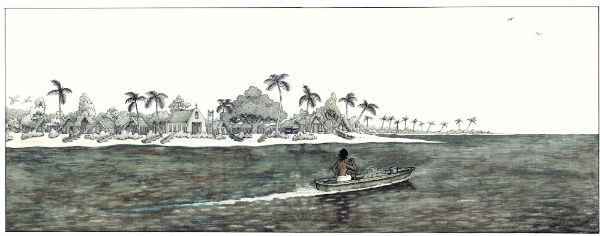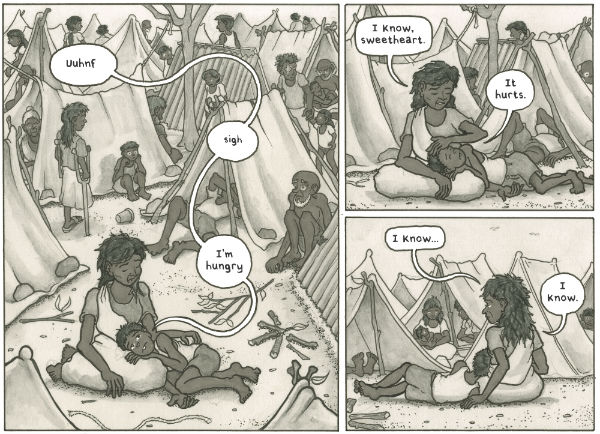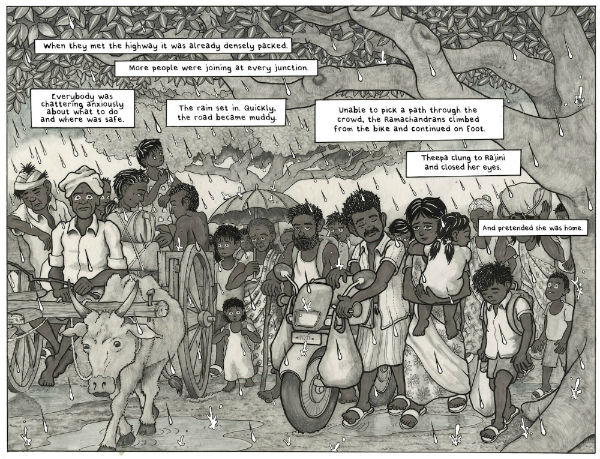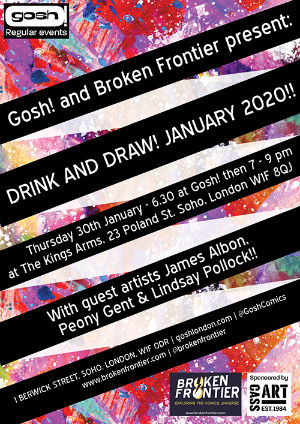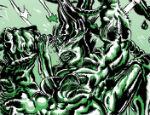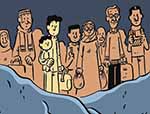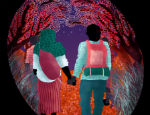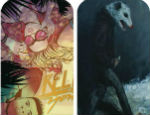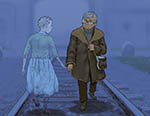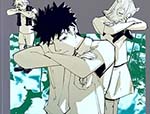Depicting the devastating culmination of the long-running Sri Lankan Civil War between the government and the independent state-seeking Tamil Tigers (a clash with its origins firmly placed in the days of British colonialism), Vanni: A Family’s Struggle Through the Sri Lankan Conflict looks at the terrible cost of that conflict in very human terms. Its publication last year marked the ten-year anniversary of the war’s end.
It follows the stories of two extended families and neighbours, the Ramachandrans (with particularly poignant emphasis on fisherman Antoni, his wife Rajini and their children) and the Chologars, who are first caught up in the devastating destruction of the 2004 tsunami and, as the years pass, find themselves displaced by the brutality of the civil war. Having to leave their homes behind, their new existences are a constant cycle of repression, searching for refuge and a desperate, day-to-day battle just to survive.
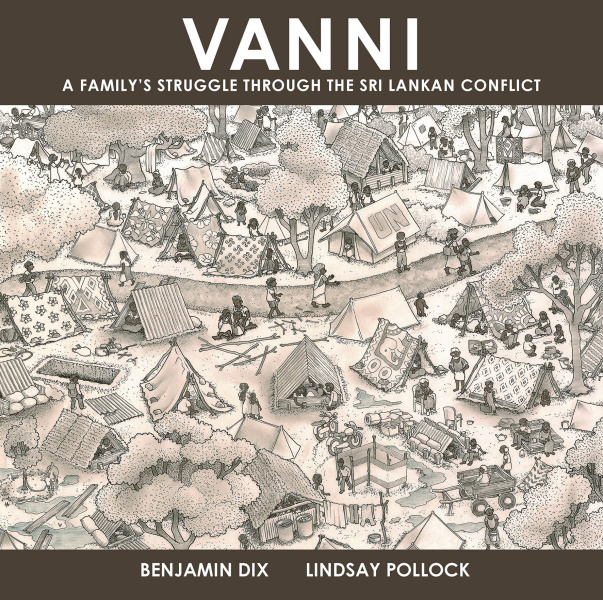
Writer Benjamin Dix is the founder of PositiveNegatives, the organisation whose vitally important work and online catalogue of comics and animation explores “contemporary social and humanitarian issues, including conflict, racism, migration and asylum.” You can read a long-form interview with Positive Negatives here last year at BF if you want to find out more about their aims and objectives. Dix was in Vanni, Sri Lanka between 2004-2008 with the United Nations and the events of the book are based on years of first hand testimonies and extensive research.
At nearly 260 intricately crafted pages Vanni is a powerful and thorough examination of events that is never an easy read but is always a crucially important one. It gives voice to the suffering of the thousands of Tamil civilians killed as a result of the fighting and acts as a witness to the inhumanity of their ordeal. Dix initially slowly builds up a picture of his protagonists and their inter-relationships, allowing us to invest in them and the universality of their family lives before the horrors that are to come. Interspersed through the main storyline are individual character studies of the sprawling cast of players that allow for alternative focuses, while pertinent information on the wider conflict is inserted into the narrative via maps and accompanying text.
Lindsay Pollock’s art plays a pivotal role in bringing these stories to heartbreaking life. Pollock plays to Dix’s character-led approach with subtlety and nuance; his command of the structure of the page is never ostentatious but, instead, displays a sophisticated understanding of the mechanics of comics in terms of pacing, ever shifting panel arrangements and the most profound visual characterisation. Decompression is never an issue here and that, in turns, makes Pollock’s rare forays into single page images or double-page spreads all the more atmospheric (a tranquil scene of Antoni fishing early on) or shocking (in one of the more horrifying scenes of carnage) when they do happen. Check out also the intuitive use of speech balloons and their tails to represent interaction or commotion throughout the book.
What the creative team, PositiveNegatives and publisher New Internationalist have achieved here is a visible and accessible account of a conflict and the crimes perpetrated in its name that have yet to enter the wider western public consciousness to the degree that they should. In doing so they give a voice to those that endured and survived those events and acknowledge the struggles of those that didn’t. In its own ironic way the book’s gentle, hopeful coda may perhaps be the most emotionally devastating section of all. This is a highly recommended documentation of forced migration, the bonds of family and the horrors of war and a testament to the importance of the work of PositiveNegatives.
Benjamin Dix (W), Lindsay Pollock (A) • New Internationalist, £16.99
Review by Andy Oliver
Lindsay Pollock is a guest artist at the Gosh! Comics and Broken Frontier Drink and Draw on Thursday January 30th





